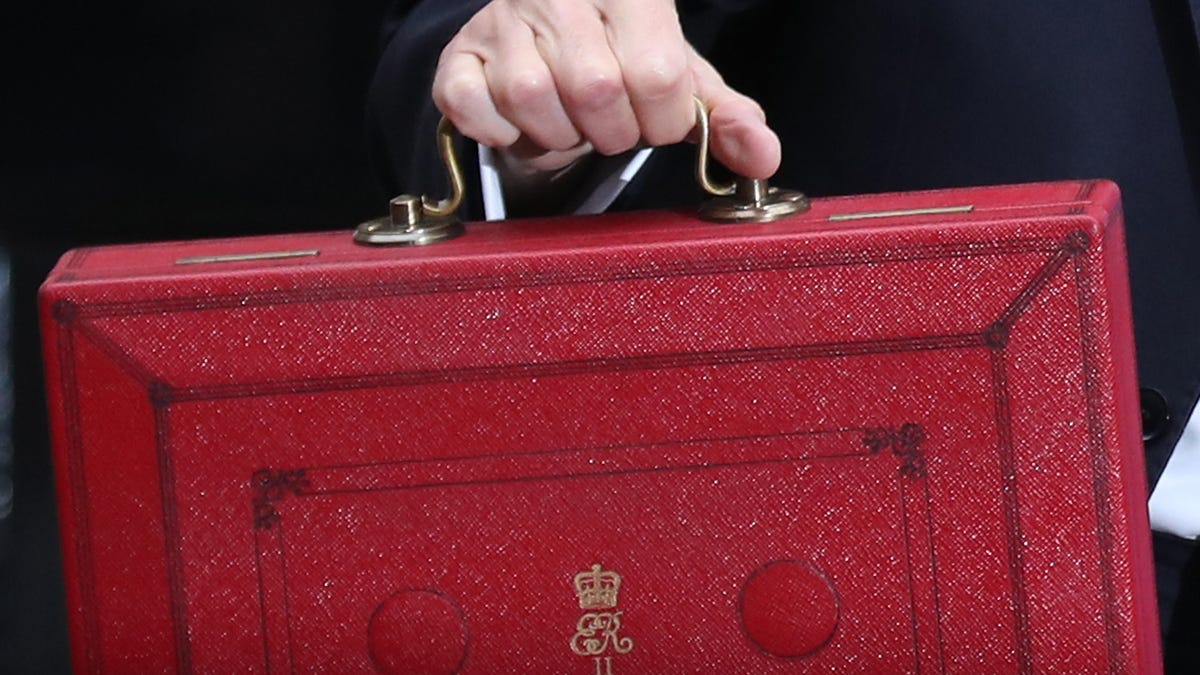AI, 5G, driverless cars on the government's tech agenda
UK government announces all the tech investments in next year's budget, including artificial intelligence, electric vehicles and more computer science teachers.

The British government is pouring billions of pounds into a number of technology initiatives, including AI, 5G, driverless cars, electric vehicle adoption and more computer science teachers for schools.
Chancellor of the Exchequer Philip Hammond made the announcements on Wednesday as part of the autumn budget, which lays out the government's spending plans for the next year.
"The world is on the brink of a technological revolution, one that will change the way we work and live and transform our living standards for generations to come," said Hammond. "For the first time in decades Britain is genuinely at the forefront of this technological revolution."
Spending on tech was divided up into various different projects. Here's where the money's going.
Innovation
“Today we invest over £500m in a range of initiatives from artificial intelligence, to 5G and full fibre broadband” #Budget2017 pic.twitter.com/FfBno59JCQ
— HM Treasury (@hmtreasury) November 22, 2017
Hammond announced £500 million of funding for artificial intelligence , 5G and full fibre broadband. This will be complemented by £2.5 billion to help businesses grow to scale and hopefully find the UK's next tech unicorn.
"A new tech business is founded in Britain every hour, and I want that to be every half hour," said Hammond.
Ernest Doku, mobiles expert at price comparison site uSwitch, said many will find the investment reassuring. "The Government has today reiterated its commitment to 5G and fibre rollout, something that will no doubt act as reassurance for those keen to see the UK's digital infrastructure boosted," he said.
“Today we’re publishing our ‘Action Plan’ to unlock over £20 billion of new investment in UK scale-up businesses” #Budget2017 pic.twitter.com/dTrwZALNM0
— HM Treasury (@hmtreasury) November 22, 2017
Driverless and electric vehicles
Hammond declared that he sees driverless cars as the future.
Chancellor: There is perhaps no technology as symbolic of the revolution gathering pace around us as driverless vehicles #Budget2017 pic.twitter.com/AxJTShdvQU
— HM Treasury (@hmtreasury) November 22, 2017
"I know Jeremy Clarkson doesn't like them," he said. "Sorry Jeremy, but this is definitely not the first time you've been snubbed by Hammond and May."
Intel research estimates the economy created by autonomous driving will grow from $800 billion to $7 trillion globally, as fully autonomous vehicles become mainstream, according to spokeswoman for the company. "By committing to adapt driving regulations, the UK economy will begin to witness this change and the benefits of this autonomous movement in as few as 4 years," she said.
But paving the way to getting them on the road will be another technology, said Hammond. "Our future vehicles will be driverless, but they'll be electric first," he said.
Investment in electric vehicles includes £400 million for charging infrastructure fund, an extra £100 million in Plug-In-Car Grant, which subsidises purchases of electric vehicles, and £40 million in charging R&D.
Tech in schools
Hammond wants every secondary school student in the country to be able to get access to computer science lessons, so he pledged to triple the number of qualified teachers to 12,000.
He also said the government will work with industry to create a National Computing Centre, although he didn't expand on what its role will be.
“…[we’re] tripling the number of trained computer science teachers to 12,000” #Budget2017 pic.twitter.com/QWDaG5UGh6
— HM Treasury (@hmtreasury) November 22, 2017
Cindy Rose, UK CEO of Microsoft, welcomed the news. "There is an urgent need for the UK to tackle its digital skills gap and use technology to nurture the creativity already present in the next generation," she said in a statement.
Hammond also linked a £40 million investment in training more maths teachers with more jobs in tech.
"Knowledge of maths is key to the high-tech, cutting edge jobs in our digital economy," he said. "More maths for everyone -- don't let anyone say I don't know how to show the nation a good time."
Internet on trains
Finally, the Chancellor has clearly been struggling to get internet on trains along with the rest of the British public. He's providing £30 million to trial new solutions to improve mobile and digital connectivity on trains on the TransPennine route.
Chancellor: £30m to trial new solutions on the TransPennine route to improve mobile and digital connectivity on trains. #Budget2017 pic.twitter.com/5LF8M0RdIt
— HM Treasury (@hmtreasury) November 22, 2017
"This could have the added benefit of boosting productivity, removing that all too frustrating digital void that leaves thousands of commuters unable to work as they head into the office," said Doku.
Rebooting the Reef: CNET dives deep into how tech can help save Australia's Great Barrier Reef.
The Smartest Stuff: Innovators are thinking up new ways to make you, and the things around you, smarter.

